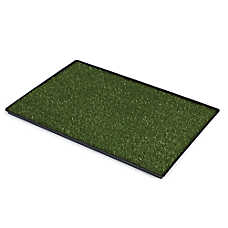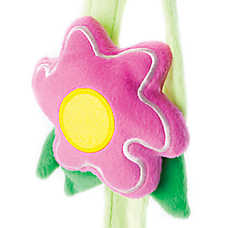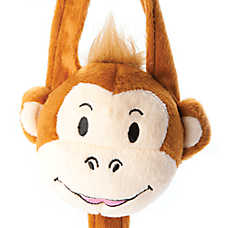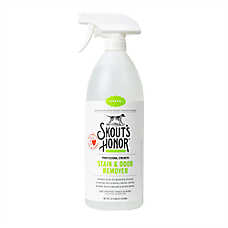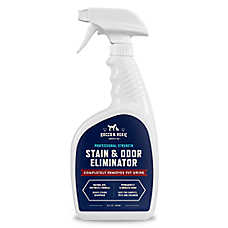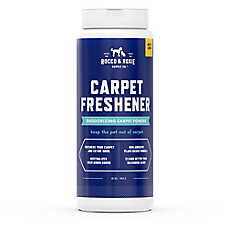A Guide to Potty Training Puppies
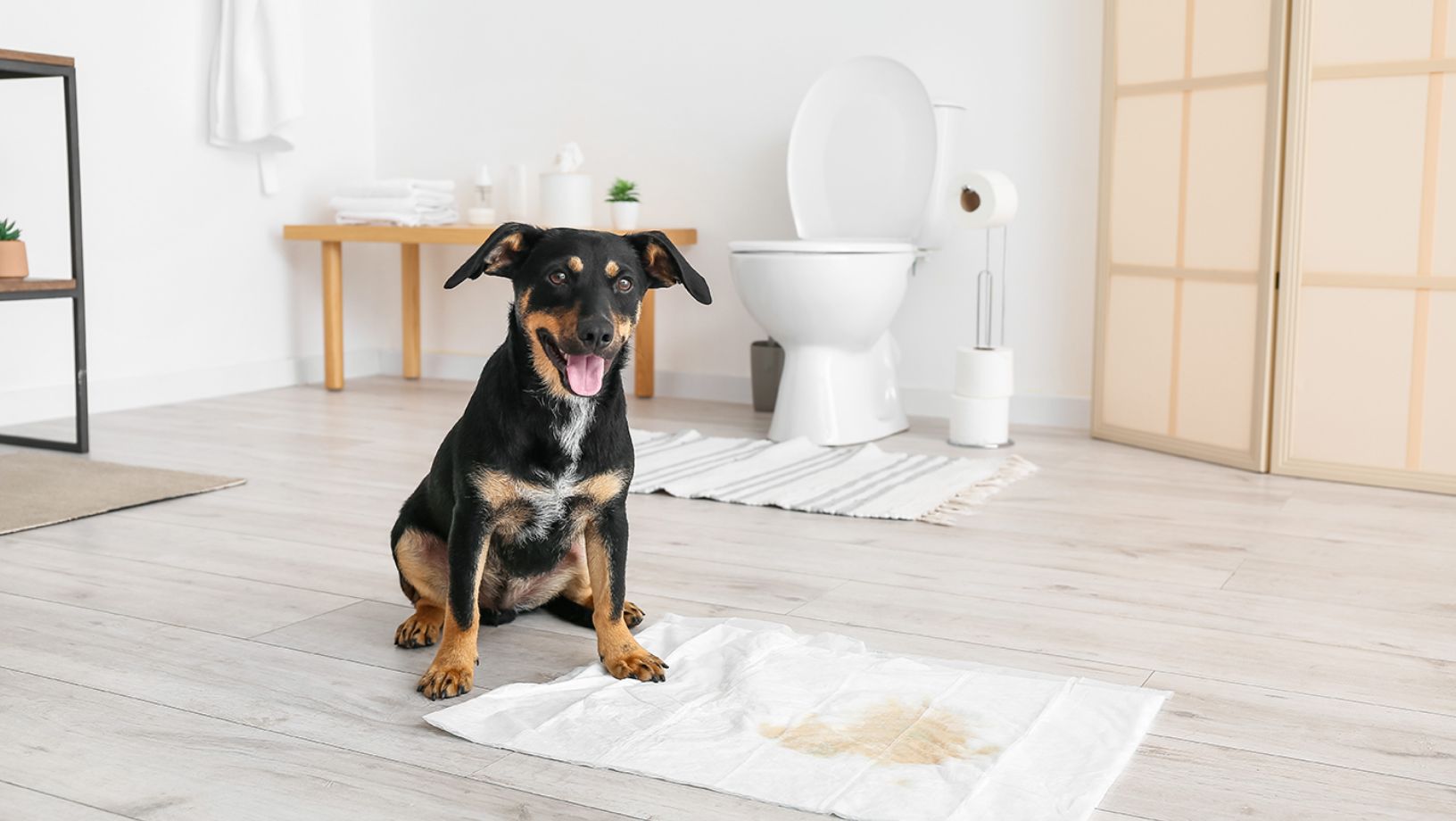
In this Article
Everyone who has had to do it knows the challenges associated with potty training puppies. With all of their cuteness comes a lot of responsibility. Until your dog is trained enough to know what to do, it’s up to you to teach them right from wrong. This involves lessons about what they can chew, where they can sleep, and, most crucially, when and where they are allowed to go to the bathroom. Out of all of the responsibilities of having a little furry friend, potty training puppies is definitely the biggest adjustment of them all.
The hard work is worth it though because even after the loss of sleep, messes made (and cleaned up) and potty pads changed, it is all temporary. There will come a day where your pup knows exactly where to go and when. Understanding the biggest challenges that come with potty training puppies and knowing how to do it the right way can make for fewer accidents and a better experience.
So what should new dog parents know about potty training puppies and how can they do it in the very best way? Keep reading to learn all of the best tips and tricks for potty training puppies.
When Should You Begin Potty Training Your Puppy?
While it would be nice if dogs could start their potty training process from the moment they are born, it isn’t that simple. As puppies, there is still some major physical development that has to take place before they can control their bathroom needs. There is a time where the puppy needs to focus on growing and strengthening things like their bladder and bowels so they can hold it for longer periods.
Potty training puppies can start as early as 4 weeks old. Pet parents should start the potty training process as soon as the puppy is in their care. But even at 8 weeks, puppies cannot hold their bladder for very long, so frequent trips to the potty area will be required until they are more developed.
How Long Does it Take to Potty Train a Puppy?
Every dog is different. When they are fully potty trained will vary depending on how quickly they can grasp the concept and how fast their physical development takes. Usually, potty training puppies can take anywhere from 4-8 weeks. In some situations, it can last even longer. This is why it is so important to be well prepared before bringing home a sweet furry friend.
Common Challenges for Potty Training Puppies:
1) How Often
When puppies are learning how to have control over their bathroom needs, it can feel like they constantly have to go. This is because, at such a young age, puppies do not have the physical ability to hold it for very long. Pet parents will notice that they have to take their new puppy out quite frequently; at least every two hours if not more frequently. Puppies also need to go to the bathroom every time they wake up and after they eat and drink to reduce any accidents.
2) Lack of Sleep
Some people compare potty training puppies to having a newborn baby. Pet parents have to wake up every couple of hours in the night to take their new friend outside to relieve themselves. This change in sleep schedule can be extremely challenging to adjust to for some people.
3) Reinforcing Good Behavior
When dogs are little, they are learning what is good and what is bad. Until they learn it, they have no clue what they are and are not allowed to do. Positive reinforcement is a huge part of puppy training that requires a lot of attention on behalf of the pet parent. Every time the puppy goes potty in the right place, they need to be rewarded so they know they did something good.
4) Consistency
All of this teaching and learning requires a lot of patience and consistency on behalf of the pet parent. Puppies need to be taught things over and over again until it sticks in their brain. Remaining consistent is a challenging task when your sleep schedule has changed and you have new responsibilities.
5) Messes
The most notorious challenge associated with potty training puppies is the number of messes you have to clean up every time the puppy has an accident. Even pet parents who take every precaution will still find that they have a mess or two that needs to be cleaned during the process. This is a completely normal part of training.
Tips for Potty Training Puppies
1) Stick to a Schedule
Having a schedule is incredibly important when potty training puppies. Keeping to a schedule can help prevent unnecessary accidents, help teach the routine to your new puppy, and create a sense of structure where it is much needed. You should try and make every day look the same in terms of when you take the dog out to the bathroom.
For example, during the nighttime, a great way to prevent accidents is to set alarms on your phone every few hours. This makes sure you do not sleep through any puppy cries and reduces the likelihood of there being accidents inside the house. Every couple of weeks you can extend the amount of time between alarms to help train your puppy to hold it. Sticking to a schedule can help your dog develop a natural, predictable rhythm for relieving themselves.
Recommended potty break times:
- First thing in the morning
- After naps
- 5-20 minutes after each meal
- Before going to sleep at night
- At least once at night (until your puppy is five months old)
- When you notice your puppy sniffing a spot while turning circles around it — that means they have to go NOW.
2) Have a Reward Ready
Every time you give a cue and your puppy does the right thing, there should be a reward. This is called positive reinforcement. Puppies remember getting a tasty treat when they did something specific, making them more likely to do it again. There are specifically designed training treats made for this purpose that you should keep on hand when potty training puppies.
3) Be Consistent in Everything
Consistency is incredibly important when it comes to potty training puppies. You should do your best to set up a consistent schedule for potty breaks. The schedule you stick to should remain the same every day, only introducing small changes over time until the desired potty schedule is achieved.
Every time you give a cue, it should be the same and a reward should be given every single time they do something correctly. If you forgot your training treats, then you should at least reward them with praise and affection for doing such a good job.
You should also make sure that you are always taking your puppy to the same spot each time they go out. This will let them know exactly where the right place to relieve themselves is--so they are less likely to do it somewhere else.
Consistency is how puppies learn best and how you can prevent accidents and confusion when potty training.
4) Get the Right Supplies
You should make sure that you have all of the right supplies to help your puppy learn and grow. There are several items that pet parents should purchase before bringing their puppy home and before they start the potty training process.
Supplies that pet parents should get includes:
A Crate
A crate is an acceptable way to keep your non-potty trained dog confined for short periods when you must leave them home alone or asleep overnight. Dogs instinctively avoid doing their business in their own space. If they do have to go, then they will whimper until they get your attention. If they do end up relieving themselves in the crate, then it is much easier to clean than your carpets or bed linens. There are even dog crates that come with divider panels that can be moved as your puppy grows. This is useful for puppies with larger crates who might feel comfortable going to the bathroom at one end and sleeping at the other end. By reducing the space in the crate and adjusting it to their size, they will be less likely to relieve themselves there.
Training Pads
Training pads are absorbent, leak-proof, and disposable; perfect to put on the floor inside the spot where you’d like your puppy to go if they need to do their business before you can take them outside. Many puppy pads are treated with a special pheromone that attracts them to the pad and motivates them to do their business there, rather than your floor. Pet parents can usually find training pads in a variety of sizes to fit the needs of every breed.
Pet-Specific Cleaning Supplies
Pet accidents are a lot more complicated to completely clean up than just your average spill. Pet-specific stain and odor removers contain enzymes that help remove, not just mask, odors and stains from pet messes. Sometimes pets will even revisit places inside, where they have had an accident previously because it smells like an approved place to use the bathroom. Using things like deterrent solutions can help prevent a pup from re-marking the same space.
5) Keep an Eye Out for Problems
Some dogs learn faster than others, but if your puppy seems to be having an unusual number of accidents, there could be a physical or emotional reason. Your dog may be anxious, depressed, frightened, excited, or could have a urinary tract infection. A male dog may even be marking his territory. If you notice that your dog is not adjusting to the schedule you are trying to teach them, you should consult a veterinarian who can help identify and treat any possible issues.
Shop this article
Related articles
We’re at your service
Find the right care, training & enrichment
